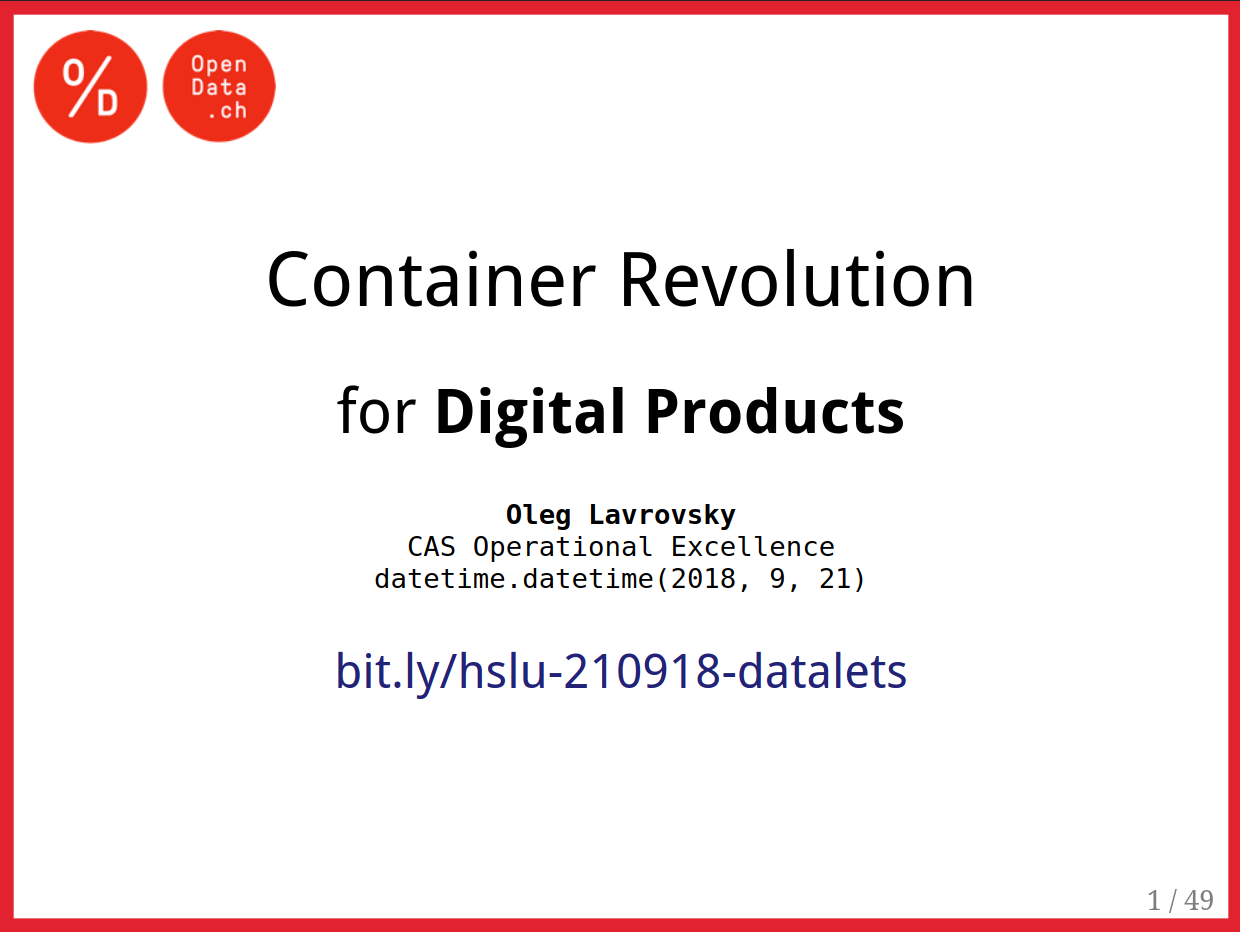Building on my spring course on open data at the Lucerne University of Applied Sciences and Arts, I had the opportunity to present a revised version of my workshop from Opendata.ch/2018 in a course on “the architecture and implementation of processes that enable companies to gain a competitive advantage through excellence … currently changing processes and business models … digitization, social media, globalization and the increasing complexity of the value network.”
With all this in mind, I tried to formulate a case study for the students out of my experience putting the Frictionless Data standards to work in recent projects - Open Food Hackdays, Dribdat, SmartUse, and the Julia library. Emphasizing the processes through which the open data community practices advocacy, and the emerging business models around open data exchange, I tried to convey the principles and competitive advantages of this approach - in what ended up to be a lively discussion about current and future data sharing and analytics practices with the group.
My thanks in particular go out to Jo Barratt whose leadership in the project - and earlier presentation Towards a frictionless data future - provided much of the orientation and material here, to Dr. Ladan Pooyan-Weihs and HSLU colleagues for the opportunity to participate in the study program, and to all the students involved.
